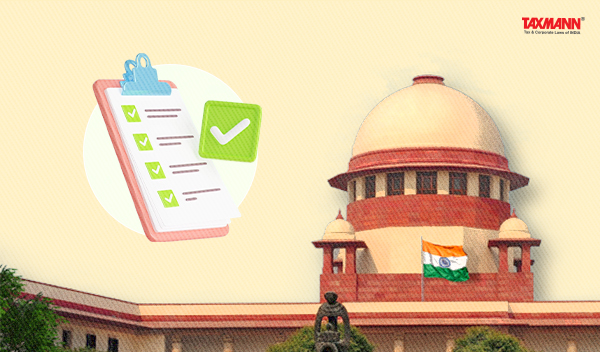Trial Court Must Understand the Factors for Compounding of Offence While Evaluating Plea for Compounding u/s 24A of SEBI Act | HC
- Blog|News|Company Law|
- 2 Min Read
- By Taxmann
- |
- Last Updated on 25 January, 2025

Case Details: Sanjay Kumar v. SEBI - [2025] 170 taxmann.com 572 (HC-Delhi)
Judiciary and Counsel Details
- Subramonium Prasad, J.
-
Jagdeep Singh Bakshi, Sr. Adv., Ms Anshika Maheshwari, Ms Varada Bhutani, Mudit Jain, Amitesh Singh Bakshi, Navroop Singh Bakshi, Ms Mahima Malhotra & Neetej, Advs. for the Petitioner.
-
Ms Pinky Anand, Sr. Adv., Ashish Aggarwal & Ms Asees Jasmine Kaur, Advs. for the Respondent.
Facts of the Case
In the instant case, a criminal complaint was filed by the SEBI before the Trial Court against the petitioner for violation of section 11C (6) of the SEBI Act, 1992. During the pendency of the complaint, the petitioner filed an application under section 24A of the Act seeking compounding of offences.
A High Powered Advisory Committee (HPAC) was constituted under section 11C (6) of the Act. The HPAC, after considering the compounding application, recommended that the offence should not be compounded. The Whole Time Members of the SEBI concurred with the recommendation of HPAC not to compound the offence.
The petitioner moved an application under section 91 of the CrPC seeking directions from the Court to the SEBI to place on record all the statements/documents/findings considered by the HPAC and Whole Time Members of the SEBI, while advising/recommending upon the compounding application of the petitioner. However, the said application was rejected by the Trial Court.
It was noted that while considering an application for compounding offence, it would be necessary for the Court to understand factors that have to be taken into account for compounding the offence. Further, for considering an application for compounding of offences, it would be necessary for the Court to summon documents under section 91 of the CrPC.
High Court Held
The High Court held that the materials sought by the petitioner became exceedingly important for the Court to make a decision as to whether to allow or not allow the compounding application of the petitioner. Thus, SEBI was directed to produce all the documents before the Court.
List of Cases Reviewed
- Prakash Gupta v. SEBI, (2021) 17 SCC 451 (SC) [Para 7]; followed.
List of Cases Referred to
- Prakash Gupta v. SEBI (2021) 17 SCC 451 (para 4)
- T. Takano v. SEBI (2022) 8 SCC 162 (para 4).
Disclaimer: The content/information published on the website is only for general information of the user and shall not be construed as legal advice. While the Taxmann has exercised reasonable efforts to ensure the veracity of information/content published, Taxmann shall be under no liability in any manner whatsoever for incorrect information, if any.

Taxmann Publications has a dedicated in-house Research & Editorial Team. This team consists of a team of Chartered Accountants, Company Secretaries, and Lawyers. This team works under the guidance and supervision of editor-in-chief Mr Rakesh Bhargava.
The Research and Editorial Team is responsible for developing reliable and accurate content for the readers. The team follows the six-sigma approach to achieve the benchmark of zero error in its publications and research platforms. The team ensures that the following publication guidelines are thoroughly followed while developing the content:
- The statutory material is obtained only from the authorized and reliable sources
- All the latest developments in the judicial and legislative fields are covered
- Prepare the analytical write-ups on current, controversial, and important issues to help the readers to understand the concept and its implications
- Every content published by Taxmann is complete, accurate and lucid
- All evidence-based statements are supported with proper reference to Section, Circular No., Notification No. or citations
- The golden rules of grammar, style and consistency are thoroughly followed
- Font and size that’s easy to read and remain consistent across all imprint and digital publications are applied



 CA | CS | CMA
CA | CS | CMA
